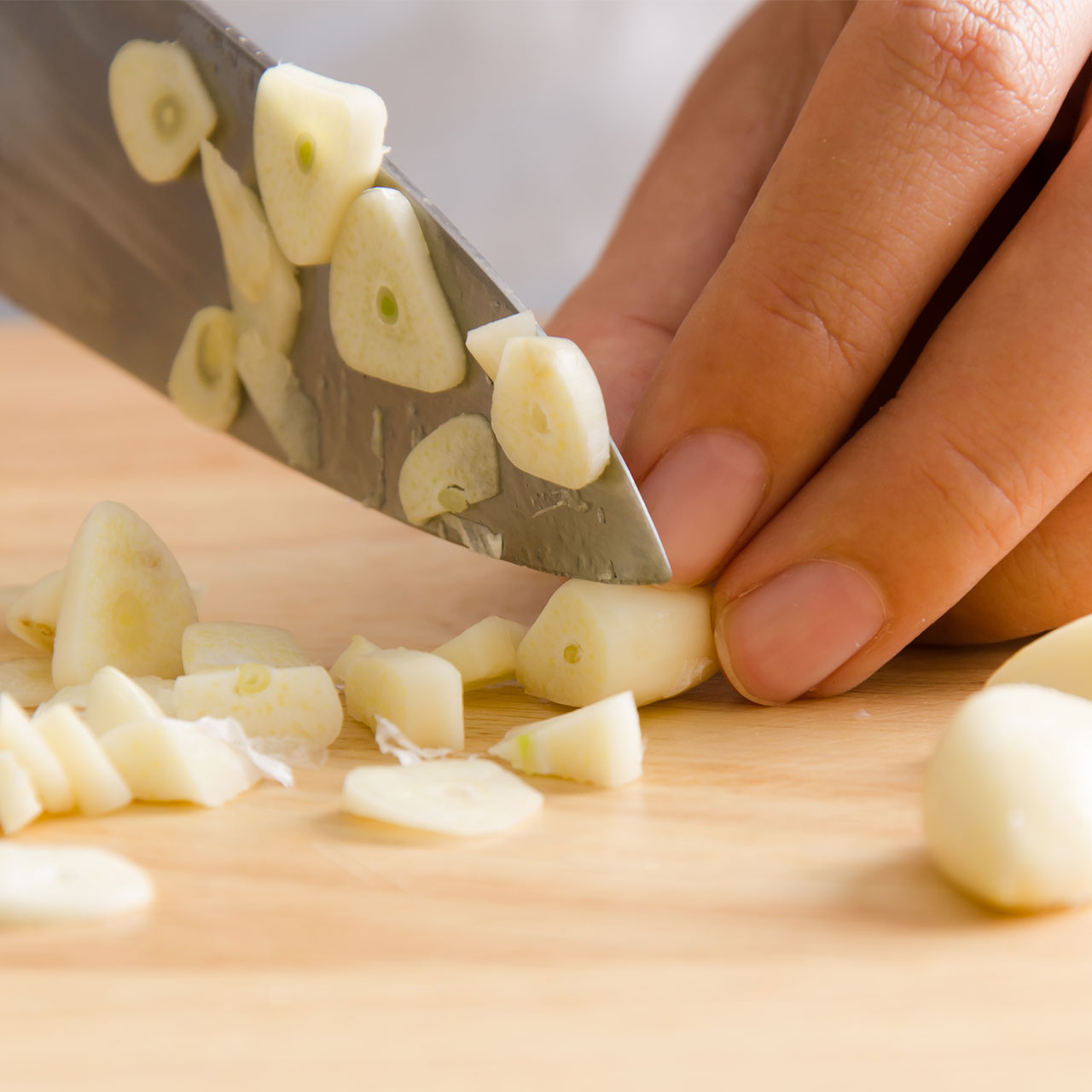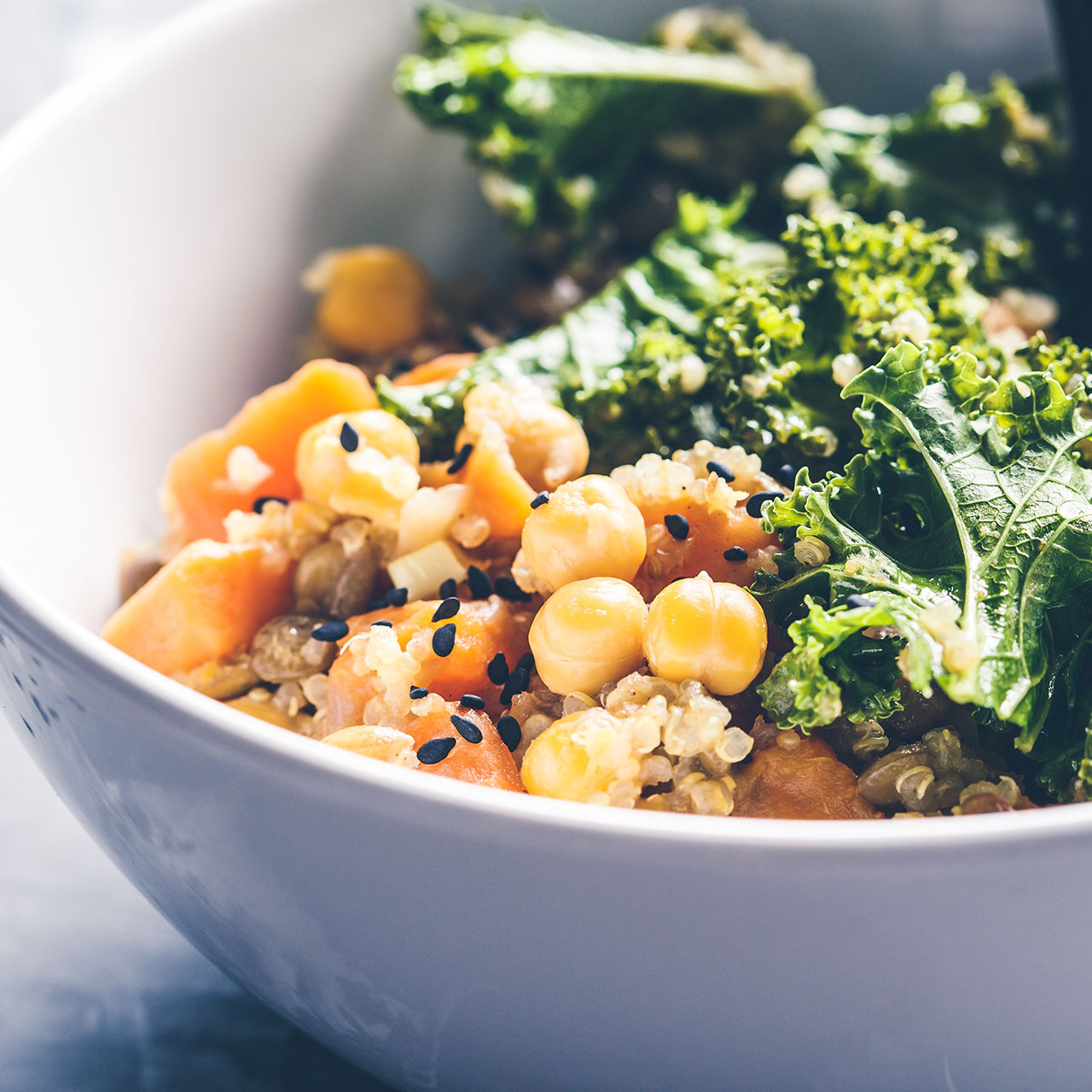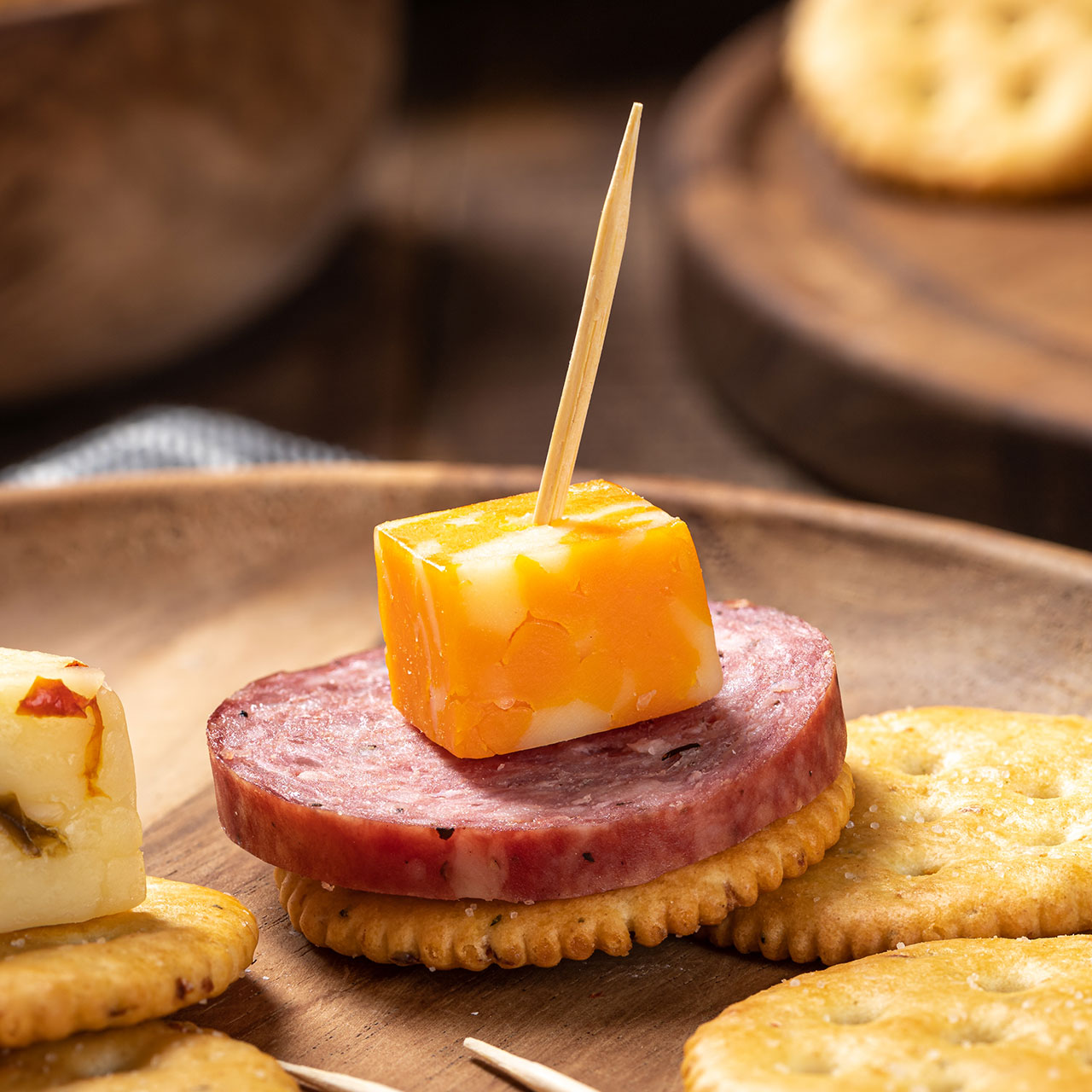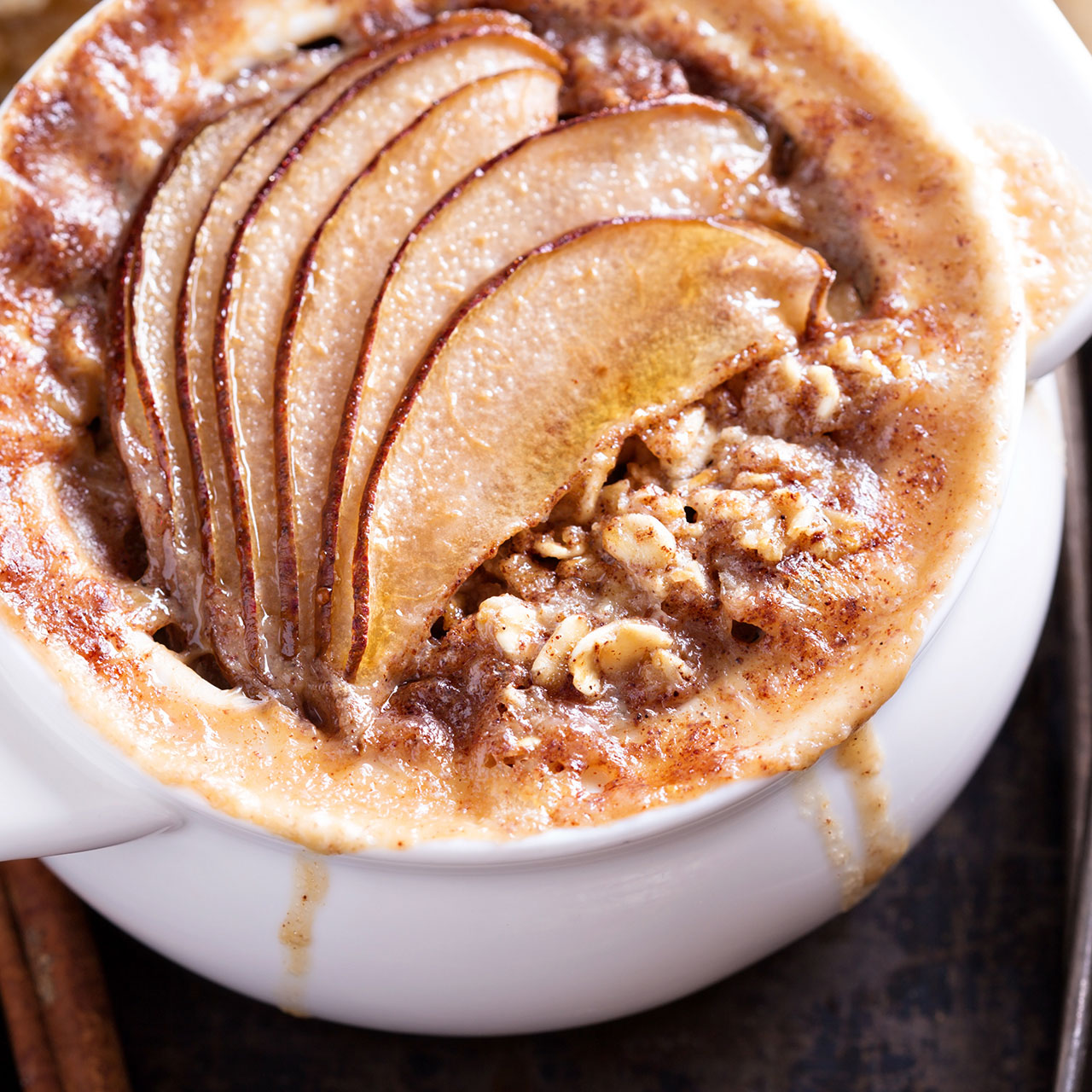This story has been updated since it was originally posted on 01/21/2023 to include more expert insight
Fiber is an essential component of any healthy diet. It keeps your gut healthy, helps regulate blood sugar, and allows you to stay fuller longer–all of which contributes to healthy weight loss. However, many of the foods you may be eating every day don’t offer very much fiber at all, making them poor choices for your overall health, especially if you’re trying to shed a few pounds. In fact, there’s are many popular breakfast foods you may be eating regularly that could be holding you back from your weight loss goals, including sugary cereal.
To learn more about the low-fiber foods that you should stop eating over 40 if you want a slimmer waistline, we spoke to health experts Onyx Adegbola, MD, Ph.D, founder of Casa de Sante, Dr. Zeeshan Afzal, MD and Allison Sizemore, Certified Sports Nutritionist and Online Coach from Couture Fitness Coaching. They told us that processed foods, namely sugary breakfast cereal and chips, should be avoided as much as possible. Learn more below!

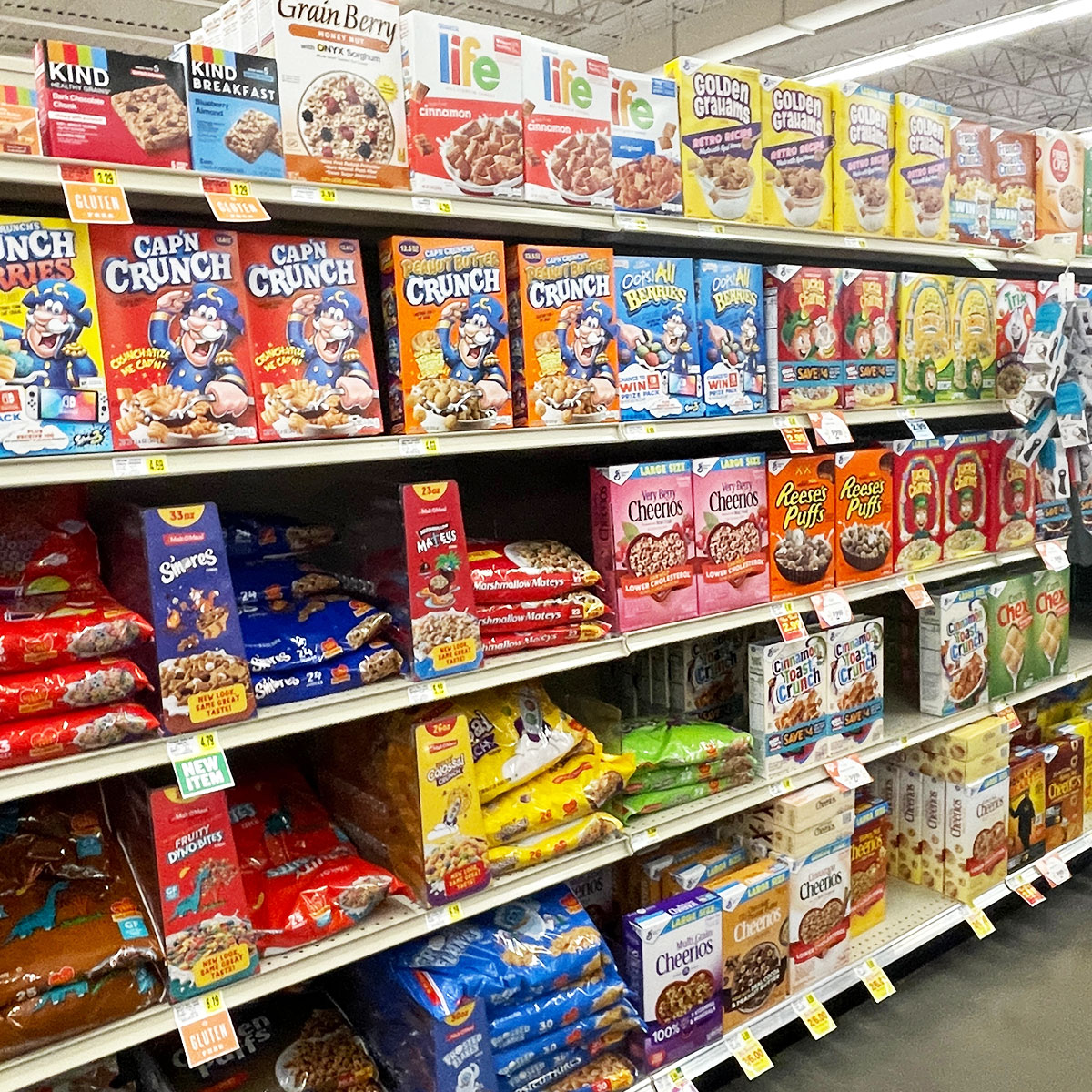
1. Sugary breakfast cereal and other sugary processed foods
When it comes to low-fiber foods, processed, refined options are oftentimes the worst culprits. "These types of foods contain empty calories that can lead to weight gain, as they are high in sugar and unhealthy fats," Dr. Adegbola says. "Additionally, these types of foods are often low in essential vitamins, minerals, and fiber, which can leave you feeling unsatisfied despite eating more than necessary." She notes that eating these foods will likely cause blood sugar spikes and crashes throughout the day, along with cravings for more unhealthy foods–it’s a vicious cycle that certainly won’t do you any favors if you’re trying to lose weight.
As far as the worst processed low-fiber foods, Sizemore puts sugary breakfast cereal at the top of the list. This food is often packed with sugar, which can lead to a range of health issues. "Eating cereal like this, especially alone with no protein or added fiber, can cause a spike in glucose, which can lead to weight gain and insulin resistance over time," she warns.
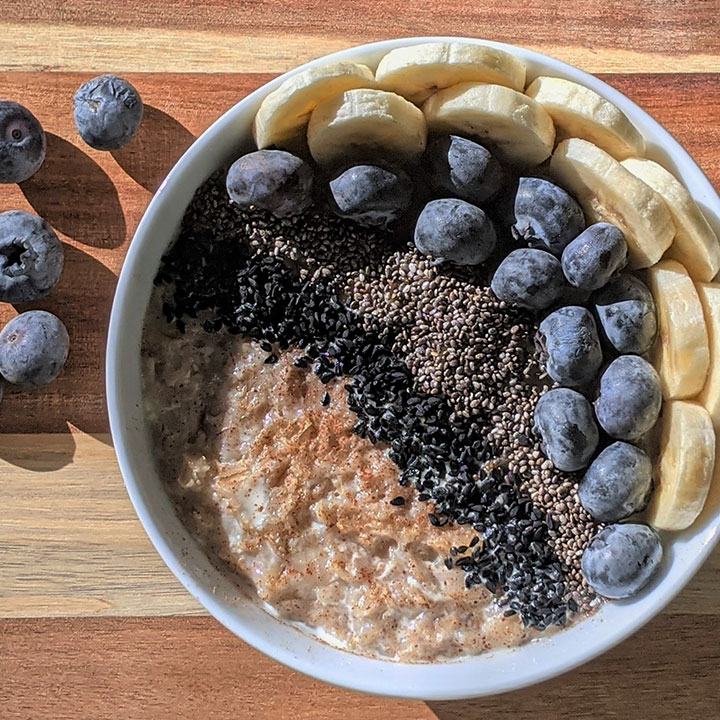
What to eat instead
If you're a breakfast cereal fan, we know it can be hard to part with this food. However, there are plenty of healthy options out there that work great as replacements. Mary Sabat, nutritionist and person trainer, recommends the following fibrous alternatives to sugary breakfast cereal.
- Catalina Crunch: Sabat describes this as "a grain free, high fiber cereal that has a good amount of fiber and protein and zero added sugars." Perfect!
- Oatmeal: Oatmeal is packed with health benefits, and with the right toppings, it can be just as delicious as your favorite breakfast cereal. Sabat recommends topping it with fruit, nuts, or cinnamon for added flavor.
- Progranola: Here's another high-fiber cereal Sabat approved of. This granola also high protein, grain free, zero sugar, and can be added to an organic Greek yogurt for a low sugar breakfast. Yum!
- Bran flakes: You can't go wrong with this classic. "These are high in fiber and low in sugar, and can be mixed with organic milk or yogurt for a satisfying breakfast," Sabat tells us.
- Chia seed pudding: Pudding for breakfast? Yes please! Chia seeds aren't only delectable, but they're also a secret weapon for weight loss. "High in fiber and protein, chia seeds can be mixed with organic milk or yogurt to create a creamy pudding-like texture," Sabat says. "Adding fruit and nuts can provide additional flavor and nutrition."
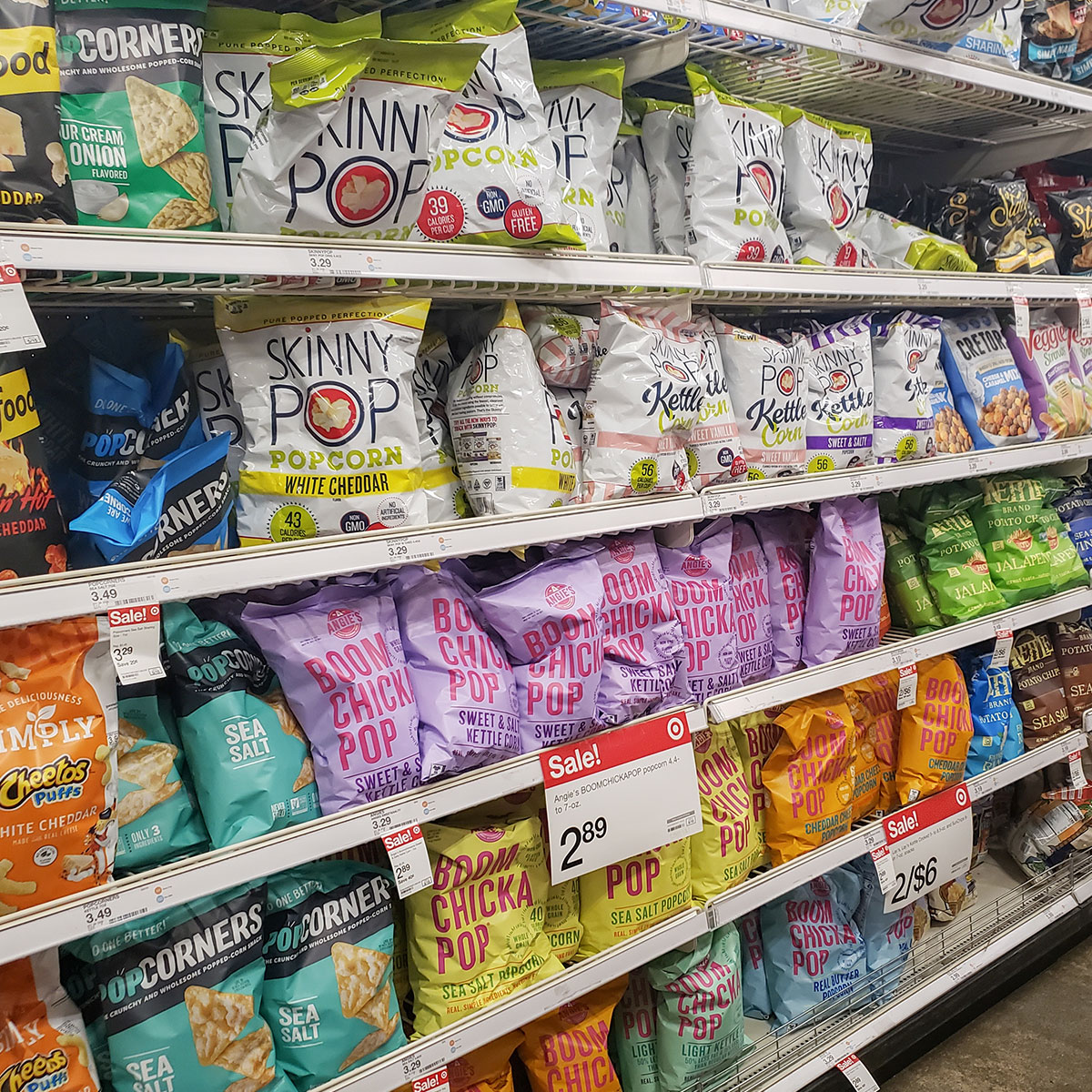
2. Processed salty snacks like chips
In addition to sugary snacks like breakfast cereal, another crucial snack to avoid for weight loss is processed salty snacks, which come with many of the same risks due to their high amount of additives and calories combined with low nutritional value. Dr. Afzal warns that options like corn chips and potato chips are high in saturated fats, sodium, and calories which could lead to a range of health risks, including belly fat.
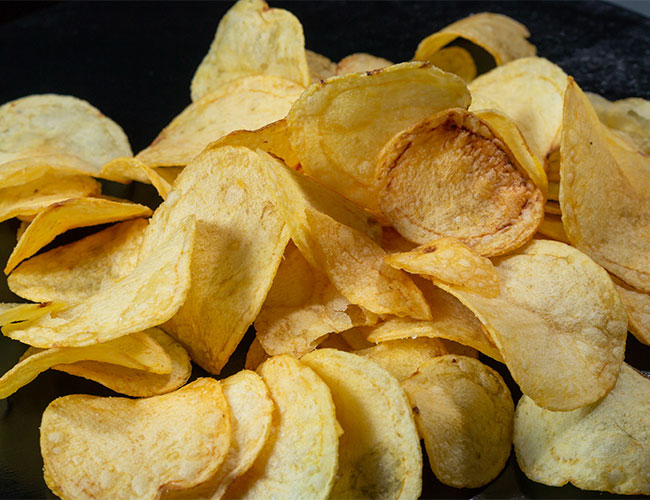
A high-sodium diet can take a serious toll on your health, potentially even resulting in heart disease, among other issues such as weight gain and high blood pressure. Additionally, Dr. Afzal notes that since they're low in fiber and other essential nutrients your body needs, they could slow your metabolism.
Ultimately, he warns, "processed snacks like potato chips or corn chips can slow down metabolism because they are high in calories, unhealthy fats, and sodium. These snacks can cause inflammation because the high levels of unhealthy fats and sodium can contribute to chronic inflammation in the body." Noted!

What to eat instead
So, next time your cravings for something crunchy and salty hits, what should you reach for in place of your go-to potato chips? Dr. Afazel recommends exchanging your chips with healthy nuts and seeds which are high in healthy fats, fiber, and protein.
Almonds, walnuts, or chia seeds, he says, can help boost metabolism and reduce inflammation. "Nuts and seeds like almonds, walnuts, or chia seeds are other great choices for boosting metabolism and reducing inflammation because they are high in healthy fats, [fiber], and protein, which can help regulate blood sugar levels and keep you feeling full and satisfied," he notes. "They are also high in antioxidants and anti-inflammatory compounds, which can help reduce inflammation and protect against chronic disease." Good to know!

The bottom line
At the end of the day, getting enough fiber in your diet is essential–and it should especially be a priority if you’re trying to lose weight over 40. "Eating enough fiber is important for weight loss at any age, but especially so for people over 40," Dr. Adegbola says. "Fiber helps to keep us full longer, which can make it easier to eat less and thus lose weight. Additionally, fiber helps to slow the absorption of sugar into the bloodstream, preventing spikes in blood sugar levels that can lead to cravings and overeating." She points out that ample fiber is also essential for keeping your digestive system healthy and reducing bloating, since it can help reduce inflammation in the gut.
The best way to ensure you’re getting enough fiber is to fill your plate with whole foods like fruits, vegetables, lean proteins, and healthy fats–and whenever possible, avoid processed foods like sugary breakfast cereal and salty chips. Your body will thank you!






















